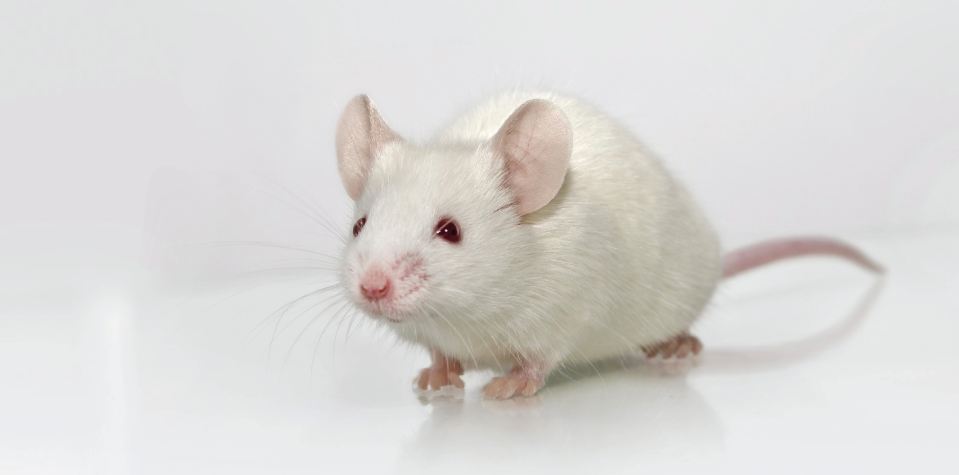Thursday, 28 November 2024 – 10H-13H
Hosted at the Switzerland Innovation Park, Main Campus - Aula Room | Hegenheimermattweg 167A, 4123 Allschwil, Switzerland
Symposium on Humanized Mice: Driving Innovation in Oncology and Preclinical Drug Development
Join us for our upcoming symposium! We have a limited in-person capacity of 70 seats, so secure your spot early. Don't miss out on this chance to engage with experts and peers - register now to reserve your spot!
Talk #1: Introduction - Humanized Immune System (HIS) Mouse Models
Speaker: Ditte Olsen, PhD
Field Applications Scientist
Immunodeficient mice have been integral tools for preclinical research and drug development for many years. These mice have been classically used when human cells and/or tissues are required. The applications are broad, ranging from safety assesment, infectious disease, oncology and immuno-oncology to autoimmune disease and much more.
Several different super-immunodeficient mouse strains have been developed such as the NOG and NSG strains. These mice lack mature T, B, and NK cells allowing for increasingly more advanced humanization including human immune system and engraftment with difficult human cell lines and patient derived tumors (PDX). The humanization can be done with peripheral blood mononuclear cells PBMCs, which are differentiated mature cells from adult donors, hematopoietic stem cells (HSCs) or more specific cell populations such as NK cells.
In this presentation you will learn about:
- The concept of humanized immune system mice and why we need them
- The various methods to generate humanized immune system mice
- The strengths and limitations of different methods of humanization
- The various strains used to generate HIS mice and the importance of selection of the right model
Talk #2: Application of Humanized Mouse Models in Oncology Drug Discovery
Speaker: Johannes Sam, PhD
Senior Principal Scientist, Roche Innovation Center
Our understanding of human immunology often relies on rodent models, which may not fully translate to human-specific immune responses. To address this, we have developed robust protocols for generating humanized mice by engrafting immunodeficient mice with human hematopoietic stem cells (HSCs) from cord blood. Futhermore, by engineering these HSCs prior to injection, we can mimic human tumor antigen (TA)-specific immune responses.
We have successfully created and characterized several human tumor models in these humanized mice for preclinical testing of new immunotherapies. Our studies have eludicated the mechanisms of T cell bispecifics (TCBs) and evaluated the safest and efficacy of targeted cytokines, costimulators, and other immunomodulating agents. These models offer translationally relevant data to support clinical development. They are instrumental in identifying biomarkers and devising human-relevant combination strategies.
Register Today!
Talk #3: Humanized Mice Modeling Services
Speaker: Caroline Mignard, PhD
Senior Study Director, Oncodesign
Many findings from conventional animal models do not apply to humans due to the intrinsic differences between species. This fact would explain the large need for humanized mouse models that will accurately support the preclinical development of such therapeutic approaches.
“Humanized” mouse models, have been established to study the complex interaction of the human immune system during human disorders. Humanized NOG mice bearing human immune cells with or without human target tumor cells, are relevant models to test various therapeutic strategies such as antibody dependent cell cytotoxicity, Treg targeting antibodies, TLR agonists, vaccines, and adoptive T cells transfer in various pathologies including oncology, autoimmune disease, inflammation and transplantation research.
In this presentation you will learn about:
- Oncodesign's activity
- Various case studies where humanized system mice are used for evaluation of drug development with a focus on immune oncology but also beyond cancer research.
- This includes different types of molecules and different tumor models.
- Understanding of how to set up a well-planned study with humanized immune system mice, including randomization criteria
- Understanding which readouts you get from these types of studies
Switzerland Innovation Park - Main Campus

Hegenheimermattweg 167A, 4123 Allschwil, Switzerland
Meet the Speakers

Field Applications Scientist
Dr. Ditte Olsen received her Master of Science in Molecular Biology from Aarhus University, Denmark and earned her industrial PhD in Neuroscience from Aarhus University and Lundbeck. During her PhD, Ditte studied the dopaminergic system in various transgenic animal models.
During her postdoctoral training, her focus changed to the field of cardiovascular disorders. Following her postdoctoral training, she joined a biotech company where her focus was on preclinical research using small molecules to reduce high cholesterol levels. Ditte brings nearly 15 years of in vivo research experience to her role as a Field Application Scientist at Taconic.

Senior Principal Scientist, Roche Innovation Center
Dr. Johannes Sam is a Senior Principal Scientist at Roche Innovation Center Zurich, where he leads a multidisciplinary team in the preclinical pharmacology department focusing on cancer immunotherapy research. He holds a PhD in Natural Sciences from Johannes Gutenberg University and a Master’s Degree in Biotechnology from the University of Applied Sciences Weihenstephan.
With over a decade of experience, Johannes has been pivotal in advancing numerous therapeutic agents into clinical development. His expertise spans from bispecific antibodies, targeted cytokines, and immunomodulators, with a particular focus on humanized mouse models for cancer research. Johannes has developed multiple novel in vivo models and has a strong track record in leading cross-functional teams and fostering research collaborations. As the research project leader for the CD19-CD28 program, Johannes drives its preclinical advancements, overseeing strategic planning and execution to ensure alignment with clinical development goals.

Senior Study Director, Oncodesign
Caroline Mignard has obtained a PhD in Biology from the University of Strasbourg in France and has more 20 years of experience in preclinical research in Oncology. She was involved in a French collaborative project (IMODI) to establish new animal models as PDX and humanized mice for cancer research. Her role now at Oncodesign Services is to manage a team of Study Directors and to provide scientific expertise to researchers for the evaluation of their candidate.
















.jpg)

.jpg)
.jpg)
.jpg)
.jpg)





.jpg)


.jpg)
.jpg)

.jpg)


.jpg)





.jpg)

.jpg)


